My Summer in Europe, Cadbury Bars, and How I Came to Realize the Food We Eat is Killing Us
It may not be entirely your fault that you are morbidly obese, but it is your responsibility, nonetheless
Over There, Over There…
In 1979 from early June through late August, I was part of an amateur orchestra performing concerts in many of the countries that constituted western Europe. While this would be my first trip overseas, it would not be my last – but it was my first introduction to cultures, and customs markedly different from that to which I had grown accustomed.
After a few days in New York City, meeting our fellow travelers and rehearsing, we boarded planes and flew across the Atlantic Ocean. Once we were on the ground in France, it meant adjusting to local customs in regard to meals and eating habits. Partly due to the fact that for the first several days in Paris there wasn’t much down time - if were weren’t on a scheduled visit to tourist attractions such as Notre-Dame de Paris, Musee De L’Orangerie, Hotel National Des Invalides and the Musee de l’Armee (the Louvre was closed while we were there), we were in final rehearsals, leaving very little time for any of us to do any exploring on our own.
Once the tour was underway, if we weren’t performing, we were on coaches to our next scheduled concert. Even when we had a morning or an afternoon, or on rare occasions an entire day to spend as we pleased, eating was not much of a consideration, with one exception. Due to a mechanical breakdown of one of the coaches while en route from Innsbruck to Salzburg, we had an afternoon to spend in Kufstein, Austria.
This meant we were on our own for lunch. Four or five of us decided to take in the town, and while we did so, we found a park where many of the locals were spending their lunch breaks, and several were having what appeared to be small picnics, so we decided to do likewise. Perhaps ten to twenty metres away from the park we found a butcher shop that also seemed to be a deli of some sort, as we were able to purchase an assortment of meats that the butcher sliced for us, various cheeses, some kind of spread, and pumpernickel buns/rolls that we had to separate by hand. We might have been of drinking age in Austria, but we were not so in America, and if such a violation were to come to the attention of the chaperones, that meant a trip home – so we drank this orange-flavoured soda from France – it was sweet without being syrupy (is that a word? Kind of like when Roger Miller used, ‘maple syrple’ to rhyme with, ‘purple?’).
That picnic remains among my most treasured memories of that time, and it is relevant because it was when I became acutely aware of the difference in the taste of the food we were eating vs what we ate in the States. The meat and cheese both tasted like actual meat and cheese. The spread, and the pumpernickel buns tasted better, too. It took me a while to figure it out, but now I know: virtually no sodium in the meat or cheese, no preservatives in the spread or the pumpernickel buns – by day’s end, they would be stale and hard.
What I also noticed was that while cuisine is unique to the given country, breakfast – no matter where – was a hard roll of some kind with butter or preserves, and coffee. Breakfast was not the meal there it was here. Typically, lunch was pretty light, and dinner was the primary meal. Dinner almost always began with soup served as the first course – without fail. Frequently, meat was almost more of a side dish or even a condiment – it was rarely the entrée.
On a couple of occasions, we were lodged with a local host family for a couple days, tops. What I observed was that it was the custom to visit the local markets for the day’s meals – the bakery for bread, the butcher for meat, and fruit and vegetable markets for produce. There wasn’t much on hand that couldn’t keep naturally for two or three days.
Compare that with how we shop for food, here, as well as what we eat. One trip to the supermarket where you purchase a week’s worth of groceries (or more), and unless it is from the in-store butcher, most packaged lunch meat contains so much sodium that not only will it keep for quite a while, but the salt is what you’ll taste the most. The same goes for cheese – sliced and packaged in those hermetically sealed, allegedly re-sealable envelopes. When it comes to food, nutrition, and eating habits, the Europeans have it all over us.
Cadbury – An Unscientific Yet Conclusive Case Study
An example I often cite to illustrate the difference between food in Europe, and food here, in the US is Cadbury chocolate manufactured in the UK, and the same manufactured domestically.
Several weeks ago, I ordered ~$100 worth of Cadbury products manufactured in the UK. For instance, the Cadbury Chocolate & Nut bar (approx. three times the size of the same one produced in the US) is just sweet enough (not sickeningly so), creamy, and begins to melt almost the instant it is on the tongue. Why? Real butter, real cream, real whole milk...no unnecessary chemicals or preservatives. Let’s consider butter:
Typically churned longer than American butter, European butter has between 82 and 85 percent butterfat (European Union regulations call for between 80 and 90 percent in salted and between 82 and 90 in unsalted). It also has a richer taste, softer texture, and is brighter yellow in color than its American counterpart.
There are other reasons why Hershey's chocolate tastes different than Cadbury. American chocolate tends to contain less cocoa and more sugar than comparable candy from Europe. The milk in European chocolate is also heated at higher temperatures, which produces caramelized notes missing from products in the States.1
The FDA and the USDA are on the wrong side of regulation of the dairy industry all the way around, though. It’s why chocolate made in the US is for %&#@, and tastes like wax. It makes me wonder what else has federal government [over]regulation ruined – and here’s the answer to my wondering:
The current food regulations and food safety laws are quite different when comparing the United States with the European Union. Whereas the EU takes a proactive approach, the United States takes a reactive one. ‘In the United States, food additives are innocent until proven guilty, while in Europe, only those additives proven not to be harmful are approved for use,’ (Organic Germinal, 2018). In fact, our food inspection systems are extremely different. Here in the US, we have a centralized federal system for food inspection and examination that is split into multiple governing bodies. The FDA is accountable for most of the food products in the country, and the Food Safety Inspection Services of the USDA (US Department of Agriculture) is accountable for poultry, meat, and eggs. While America’s food is federally regulated, Europe’s food is not.2
The above seems to bear out Ms. Gajewski’s view:
Actually, you can get the ‘real’ stuff in Europe because they don't allow for nearly as many additives as they do here. We ‘regulate’ here not for people's health but for business's bottom lines, meaning the FDA is just fine if we get poisoned from the wax in our American chocolate.
…and this is most unsettling:
All food in the 27 countries that make up the European Union is regulated by the European Food Safety Authority. The EFSA has much stricter food regulations that we do here in the US. because of these strict regulations, common companies like Kraft-Heinz, Kellogg’s, PepsiCo, Quaker, etc. sell safer, better products oversees while making inferior versions to sell to Americans (Food Babe, 2019).3
If this isn’t enough to prompt you to buy locally – as in, owned, operated, and manufactured locally – I don’t know what will. These enterprises are multi-national, and are only nominally subject to the laws in the countries in which they do business. Ronald E Muller, and Richard Barnet were prescient not quite fifty years ago when they published, Global Reach: The Power of the Multinational Corporations.
When Bigger Is Not Better
All of the preceding is a preface to what Lillia Gajewski so succinctly described as a conversation about food in America and preventative nutrition…not one that moneyed interests (corporations and the medical system) really want us to have.
We Americans, on the whole are getting bigger, heavier, and more obese – per the CDC: In 2017, the percentage of Americans who would be considered as obese was 30.5. In 2020, that percentage was 41.9.4
That’s the bad news.
Lest anyone conclude that personal responsibility and accountability have no place here, let me disabuse you of that ridiculous notion – personal responsibility and accountability are central to this discussion.
Let’s be crystal clear: Obesity is not a disease. Regarding it that way only removes your own responsibility.
There is an aversion in our society to holding anyone accountable for their own actions when the truth is that at some point, you and only you are responsible for the current state of your condition. Ultimately, I am responsible for mine. There may be any number of contributing factors that may or may not have been in your control, but at some point, you have no choice but to be accountable and take responsibility for your own actions that have brought you to the state of current condition – good or bad. View the entire video if you like, but it’s what he begins to discuss at the 00:11:50 mark that is relevant.
That being said, being responsible for your condition does not let the other bad actors off the hook. Among the many culprits are Weight Watchers, Nutri-System, Jenny Craig, Seattle Sutton, et al. because despite their claims, they don’t help their customers replace bad eating habits with good ones. Your “membership” in any of these programs requires you to purchase several weeks’ worth of their own prepared, pre-packaged frozen entrées and snacks, and to eat only those. While most require accountability via weekly weigh-ins, they are licenses to print money for the franchise owners more than anything else. Now – you will lose weight if you follow each one’s program – but as soon as you begin to re-introduce real food back into your diet and stop eating their prescribed meals, the weight lost returns, and with a vengeance.
Some of the other malefactors include:
Body Acceptance v. The Body Positivity Movement
There is a fine line (not an invisible one) between acceptance of one's weight (and perhaps by extension, one's self), and insisting that one's morbid obesity is not only acceptable, but healthy (which is what the body positivity movement is doing), and it's more destructive than the morbid obesity, itself.
Accepting that you are morbidly obese and admitting that it is not okay to remain so is a good thing. Doing so gives you a starting point to make changes (tiny, little ones, first) and work toward becoming healthy. In doing so, you are taking responsibility for whatever happens from that point, forward. We can accept ourselves without accepting our extra weight, or our morbid obesity.
It's okay to admit that you're not healthy. It's not okay to do nothing about it.
Conversely, defiantly (but ignorantly) proclaiming that your morbid obesity is positive, healthy, and even remotely attractive, is harmful. Those who do so seem to be rebelling against the nutritional science – yes, science – and the fact that if you are morbidly obese, the odds are that you are also contending with other co-morbidities (Type-II diabetes, high blood pressure, hypoglycemia, neuropathy, et al.) which if not managed successfully, ultimately will be prematurely fatal.
It’s likely that if one or more of these co-morbidities is present, then your condition is no longer one of being overweight, but one of obesity. Their presence is a much more reliable indicator of morbid obesity than the BMI (more on that, later).
Yes, there are folks who are otherwise physical specimens, like Jay Cutler, former professional football player, who suffers from having Type-II diabetes, but that is the exception, not the rule.
Those who condone glorifying obesity as somehow striking a blow for social justice, giving voice to those in society who are oppressed and marginalized by a fictitious social convention that is untruthfully perceived to preserve patriarchy and perpetuate white supremacy, and standing up to said fictitious social convention are not only delusional in embracing such a skewed view of reality, but they are dangerous in their ignorance, and such is not to be celebrated.
Co-opting heroism, taking on the mantle of a role model that does more damage to the self image of a child who is at-risk than any playground bully ever could is not brave, no matter how many vacuous pinheads in the entertainment industry only demonstrate ally-ship to show they are on the right side of the woke “cause” of the moment.
A growing volume of better contextualized data is fleshing out an increasingly detailed profile of what it means to be healthy, better defined risk factors, and more effective treatment through better mental health. It is becoming clear that even if one is somewhat overweight, the indicators of good health (or perhaps lack thereof) such as HDL & LDL cholesterol, blood pressure, glucose, liver & kidney function, can be well within normal limits, but what it does not mean is that one can be healthy at any size like the body positivity folks insist – it just isn’t true.
Being morbidly obese does not make you a bad person. It has nothing to do with your value as an individual. Being on the receiving end of someone maliciously fat shaming you is no fun, and as difficult as it may be, there is likely something to take away from the ignorant remarks that smacks of truth.
What We Teach Our Daughters & Sons About Physical Beauty
We’ve been conditioned to believe that we’re physically inadequate if our bodies don’t measure up to the standards of Hollywood, or our popular culture – sadly, this is often accompanied by self-hatred, as if it is some failure of character. We do not seem to acknowledge that female or male, we were created as we are for a reason – and acceptance of that fact frees you to change that which you are able.
There’s a reason that Barbie is a toy doll, and that Thor only exists in comic books – there’s no way anyone could ever even come close, and harming our bodies trying to do so is dangerous. Not everyone is born to be a ballerina, or a ballet dancer – and not only is that okay, it is as it should be.
I include this video because not only does it illustrate my point about body acceptance, but the truth she speaks is so subversive it deserves to be shared everywhere.
Am I sending a mixed message, here?
No, I am not – and here’s the distinction: our physical attributes (such as being curvy, if you are female, or being stocky, if you are male) are determined by our genes – hard-coded into our DNA. Our physical fitness, is not – that is entirely up to each one of us.
If you are a woman, curvy is how you were made.


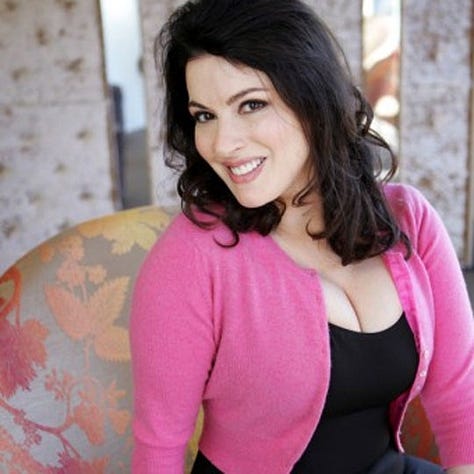
Overweight, or obese is what you’ve become by your own hand.


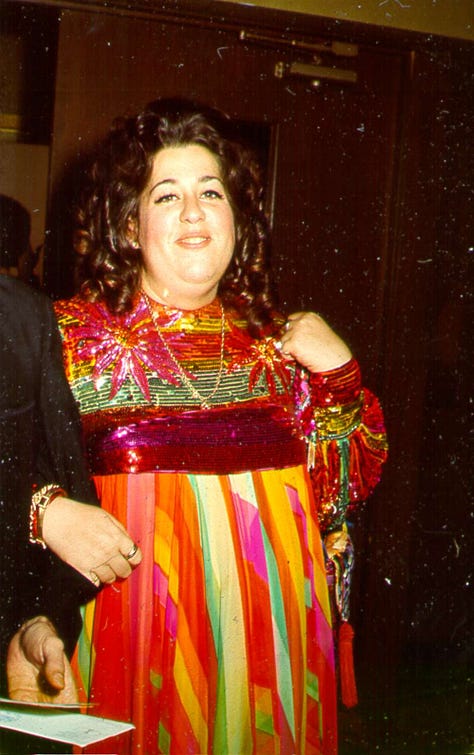
If you are a male, stocky or barrel-chested is how you were made.
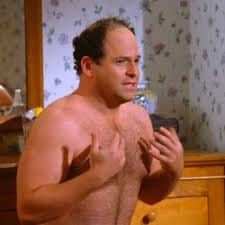


Again, overweight, or obese is what you’ve become by your own hand.



The standard of physical beauty has always been arbitrary – it’s not a fixed standard. That being said, as important as is inner beauty, physical beauty truly does come in virtually all shapes and sizes. Sadly, Madison Avenue refuses to make the distinction between curvy and fat by using such insulting designations like, ‘full-figured’ and, ‘Plus-sizes.’
It’s no better if you’re a man – ‘big & tall’ is every bit the insult. No one who is tall shops in those stores, or in those departments online – only fat guys do – I know this because that was me, at one time.
This is far more honest.
Personally, I believe that the message contained in Rosie’s character’s monologue is sage advice – even if you can’t stand the messenger.
When the Food We Eat Will Kill Us
When I left for Europe that glorious summer, I was on the heavier side, having already experienced my growth spurt – when I returned home in late August, I had lost so much weight that my mom barely recognized me. Having lived for a summer as most Europeans did year ‘round, I have no trouble calling out America's abysmal eating and dietary habits.
Portion Sizes in Restaurants
Regardless of the establishment – fast-food, casual, or fine-dining restaurants such as high-end steakhouses like Morton’s, Smith & Wollensky, Ruth’s Chris, et al., portion sizes are out of control. Good lord – ever been to a Cheesecake Factory restaurant? My wife and I can share an entrée, and still take some home in a box for one of us to have the next day. If I order a Bacon Cheeseburger from Wendy’s, I can cut it into two pieces, and struggle to finish one of them.
Why do we eat the entire entrée? Because it’s there on the plate – it’s what has been served and if you are of a certain age, growing up, you were conditioned to eat everything on your plate.
Despite that ethic having been largely discredited, you’re still working against 10+ years of conditioning.
Chemical Additives
So many of the additives in much of the food we consume – processed food in particular – are preservatives. These are synthetic chemical compounds that the body either does not or cannot digest. I submit that they remain in our systems in trace amounts, but over time they have an indirect effect on the body's ability to metabolize food. Consider that these foods begin to be consumed when we were children – twenty to thirty years of these chemical compounds is bound to have some adverse impact, like the ability to lose weight without drastic, possibly life-threatening measures.
I’m not sure I can think of anything more damning, than this:
In the United States, food additives are innocent until proven guilty, while in Europe, only those additives proven not to be harmful are approved for use…
Clearly, this is not the view of our federal government (which ought to be serving we, the people). God forbid that ICI, Beatrice, Con-Agra, Pfizer, ADM, et al. are denied having their fingers in the various slices of the ag industry pie.
Note: a crucial distinction is to be made between GMO foods, and those containing additives that aren’t removed until they’ve proven to be harmful. GMO (Genetically Modified Organisms) have been the bogey man of the organic farming, back-to-nature, granola-munching crowd for decades. Its benefit has been crops with higher yields, better able to withstand diseases (heartiness), and improved nutritional value without any side-effects, but that doesn’t fit the genetic engineering=bad narrative. Even the pesticides used to keep harmful insects in check are water-soluble, meaning that not only do they not remain in the soil and seep into the water table, they can’t do any harm if fruits and vegetables so treated are properly prepared (read as, rinsing under running water), first.
Food as Medication and Its Impact on Self Image and Sense of Self Worth
Far too many Americans use food to self-medicate, and if you think that using food is in any way better than heroin, crack, marijuana, crystal meth or alcohol, think again. It is not healthy – but we do it to numb emotional pain of some kind and truth be told, it is likely that our self image and sense of self worth figure largely into the picture. If you were the fat, pudgy kid in school, you endured teasing and abuse that is indeed part of growing up – that doesn’t mean that it didn’t do some damage, though.
If we were to make it through elementary, junior high, and then high school, we had to find ways to cope – for some of us it was sports, for others it was theater, and for others, they eventually discovered a constructive passion. Others did not, however and they sank further into self-medicating with food or other substances.
This part of the conversation goes beyond food, but it is crucial. With few exceptions, both men and women who are morbidly obese have a common thread of sexual abuse that occurred early in childhood. While that may be one of the reasons why one uses food to self-medicate, it's not an excuse, and addressing it – whether in therapy with a professional counselor, a pastor, or a priest – will only yield benefits in other areas of your life as well as set you up for success in your weight-loss journey.
Okay, Smart Guy – What Are We to Do About It?
In no particular order, these are measures you can take to change the current trajectory of your life, if you find yourself morbidly obese, or even somewhat overweight. Perhaps you can do only one of them, or all of them, but to do nothing is not really an option if you want to be healthier.
Eat Real Food
There is no such thing as real food that is bad for you – carbs, gluten, fat – these are not the enemy. They have all been in food since it was discovered that the beasts of the earth, air, and sea taste so much better when roasted over a fire. On the other hand, there is plenty of processed food that is bad for you.
High quality, lean red meat, or poultry, or pork (especially bacon) contain the type of protein that is best metabolized by your body, and the nutrients and fiber are easily digestible. Meat-based protein has it all over plant-based protein, despite the soy boys insisting otherwise. Talk to anyone who is a long-distance runner who has tried to replace meat-based protein for plant-based while training for the next event, and he/she will tell you that only meat-based protein provides what is needed to compete and go the distance. Hell, even Bear Grylls has seen the light*.
Eat Fresh Fruits and Vegetables
Do this especially when in season and available. Even better if you can grow your own in a garden in your back yard. I couldn’t appreciate it when I was younger but now, I savor of the taste of a vine-ripe tomato – especially in late February when the prospect of such might just as well be Pluto. When I was growing up, if we were having sweet corn with dinner, it came from someone’s own field, and was sold off the back of their pickup truck.
Eat Whole Grain Bread and Bread Products
Bread has been around since the Dead Sea was alive, and it has always contained carbs and gluten – and for all those millennia, hardly anyone was allergic to the gluten that was the result of combining flour, yeast, and oil or water, and then baking it either over coals, or in an oven.
Eat Real Cheese, Butter, Eggs, and Cream
Use lard, or bacon grease when cooking – particulary if you’re using Mary Cooper’s recipe for peach cobbler.
It’s anecdotal, to be sure, but there are accounts of families who farmed, perhaps even homesteaded land in what is now the Midwest, who consumed a daily diet of eggs, bacon or sausage, biscuits made with lard, sausage gravy for breakfast; meat (beef, poultry, pork), and whatever seasonal fruit and vegetables were available either from their own gardens, or root cellars for lunch and dinner. You can bet that these were true whole foods, with plenty of fat – but most farm work was hard, manual labour and it was likely that most of the calories consumed in that rich food were burned in the process of the work being performed.
Avoid Eating Highly Processed Foods
Almost all convenience foods contain a lot of chemical compounds and preservatives that are not found in nature – especially, fast food.
Stop consuming low-calorie, low-carb, low-fat foods – whatever is removed has to be replaced with something that mimics its purpose, and that something is a compound only someone with a master’s degree in chemical engineering can read.
Here’s a rule of thumb: if you can’t easily pronounce an ingredient, chances are it isn’t good for you. Yet, generations of Americans have been consuming this crap, feeding it to their kids, who in turn feed it to their kids, who in turn feed it to their kids, passing on genetic mutations the result of which at some point is an intolerance to lactose, peanuts, gluten, or even chemical compounds that occur naturally.
Of course, we’ll never know if my hypothesis can be proven or disproven because, once again, the FDA, the USDA and this nation’s ag industry behemoths (not the actual farmers) like ICI, Beatrice, Con-Agra, Pfizer, ADM, et al. and their lobbyists in Washington, D.C. own the appropriations committees in the HoR, and there is no way in hell funding for such research will ever be approved lest the harm they’ve done (which dwarfs that which may have been beneficial) ever comes to light.
Eliminate Milk From Your Diet
Contrary to what the American Dairy Association’s National Dairy Council and its lobbyists in Washington, D.C. claim, the human body does not need milk from cows, or goats, or any other such mammal, and there is no benefit to consuming it. The only milk your body ever needed was that from your mother’s breast – and guess what – you were not allergic to it.
It is a lie – as is the food pyramid which we have all been conditioned to regard as the definitive authority on nutrition and accepted as gospel, is a lie.
It is nothing but a product of the USDA to justify the agricultural subsidies provided by the US federal government – the first instance of socialism gaining a real foothold in this nation. As a result, every two years, congress negotiates what is called the Farm Bill – it details just how much the entire ag industry will receive in taxpayer funded subsidies – your tax dollars. It is both a scam, and a sham.
Change the Nature of Your Relationship With and To Food
This is probably the most difficult challenge to meet – it is a mental battle, a psychological struggle, but it can be done – tens of thousands of others and I, are living proof. It may require some therapy, and some assistance from an ethical nutritionist, but as soon as you internalize that the only real purpose of food is to provide nourishment and nothing more, you are well on your way to victory. If it serves any other, like a reward, a source of comfort, or medication, it is a substance that is being abused – and you have a problem.
Like Craig Ferguson says in the video, after he had completed his twenty-eight days and was leaving rehab, he was advised that his was now a chronic condition that required constant vigilance. Your new relationship with food is no different. The consequences of a relapse may not be as grave or immediate, but they are every bit as serious.
My Weight Loss Surgery Story in Reader’s Digest Form
In the interest of full disclosure, I am a WLS (Weight Loss Surgery) patient.
Understand – WLS is a tool that allows those at risk to lose the weight necessary to manage their condition and perhaps other co-morbidities. WLS is not a shortcut – it is not an “easy” way out.
We still need to do the same things that others who are successful without it, do to keep the weight off, or as much as is possible. We change our lifestyles, are mindful in virtually every aspect of our lives, are disciplined in what we eat, when, and how much. We become comfortable with throwing away food.
WLS became necessary because my own efforts to lose enough weight thirty-some years after that glorious summer in Europe were not sufficient to avert a health crisis. Yes, there are those of us who, despite our commitment to changing our lifestyles, are still unable to lose enough weight to bring our co-morbidities under control.
For those who make declarations like, “It’s an easy equation – burn more calories than you take in, and you’ll lose weight…” (not necessarily true for everyone at every stage of their lives), or scream, "Follow the science!" let me point out that the BMI is a fluid measurement at best, and its data is all but useless as it cannot be contextualized across gender, ethnicity, as well as a host of other genetic factors, and a determination of 'healthy' cannot be made using it.
My internist (whose bedside manner was much like that of Dr. House) explained to me that I was out of options and that if I wished to live much longer, I needed to let my insurance carrier approve the surgery and go under the knife.
Almost a year pre-op, I began to change the nature of my relationship to food as it was a condition of my insurance carrier’s approval – two psychiatric approvals a year apart were required. I needed to learn to use food for nourishment – not medication – and eating to take in nutrition, not something to do because I was bored.
The same was true in regard to alcohol. This is because twenty-plus years of data shows that among WLS patients, there is a propensity to trade one harmful addiction for another. The rate of alcoholism among WLS patients is staggering, especially among those who didn't indicate a tendency toward alcohol abuse, pre-op. Fortunately for me, alcohol abuse was not an issue – then, nor now.
Post-op, I continued (and still continue) to keep the relationship one of nourishment. I began to eat real food – butter, eggs, meat from the local butcher, fresh fruit and vegetables, whole-grain bread from the bakery.
I stopped snacking on chips, Oreos, Cheetos, et al., and virtually everything that was made with fructose. I stopped eating most everything that came in a can. I learned how to cook (I make a killer omelet), how to bake, how to shop for groceries instead of purchasing pre-made, pre-packaged dinners like Lean Cuisine, Healthy Choice (an oxymoron if ever there was one), Smart Ones, et al.
Don’t misunderstand – I enjoy food – steak, barbequed brisket and ribs, chicken, pizza, burgers, the occasional Big Mac and fries – damn near everything – I enjoy cooking (preferably on a gas range) – and I’m fine with throwing away what I cannot finish at one sitting. I enjoy pies, cakes, cookies, tortes, and almost any and every confection even if taking only a bite or two.
While alcohol abuse was not an issue for me, it doesn’t mean I don’t enjoy that, too – I do. My preference is for beer (Shiner Bock most of the year, and Shiner Light Blonde Ale in the summertime), and ale (Killian’s Red) when we visit my sister and brother-in-law. Twelve ounces is about all I can tolerate, now, and that is more than okay with me.
The difference is that now I’m in control of the food I eat, the alcohol I drink, and how much, not the other way around.
The good news is that we – you, and me – can each determine our own healthy future.
Thank you, dear reader, for your time and your indulgence.
God bless the late John Pinette – his entire routine is worth viewing, especially if you are in need of a good laugh. More power to the ones who can laugh at themselves, and even make a living as comedians doing so – but deep inside, these guys, like the late Louie Anderson, and the late Ralphie May (pardon the language – but tell me he’s wrong), were hurting like you wouldn’t believe.
*If you don’t think that BigTech and the media are in the bag for veganism – not even vegetarianism, any longer – think again. The Bear Grylls article from FauxNews was #13 in the results returned from a search using Google. That means it was buried by the algorithm.
Some of the content contained in this post came from comment threads completely unrelated to the topic of the actual original post. Here they are for you to read or re-read on your own:
https://lilliagajewski.substack.com/p/so-what-actually-happened-to-svb
https://lilliagajewski.substack.com/p/of-hush-money-political-thuggery
https://www.marthastewart.com/7690486/american-butter-european-butter-differences-explained#:~:text=Typically%20churned%20longer%20than%20American,color%20than%20its%20American%20counterpart.
https://www.mentalfloss.com/posts/why-american-chocolate-tastes-like-vomit#:~:text=There%20are%20other%20reasons%20why,from%20products%20in%20the%20States.
https://wellwithrae.com/food-chemicals-in-america-vs-europe/#:~:text=Whereas%20the%20EU%20takes%20a,(Organic%20Germinal%2C%202018).
https://www.cdc.gov/obesity/data/adult.html






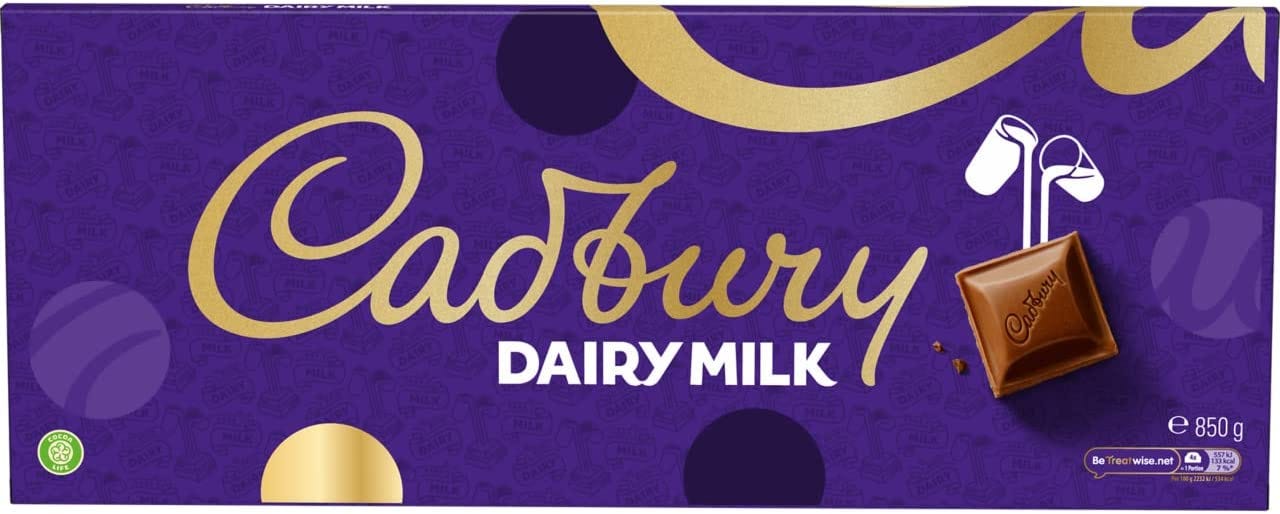
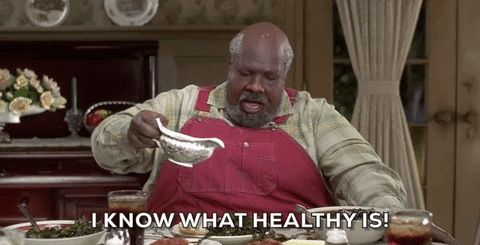
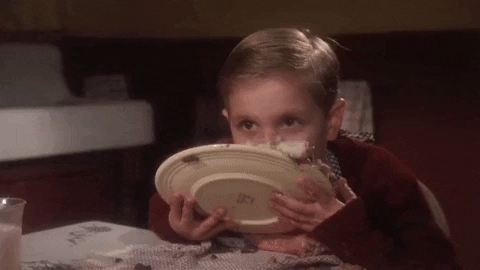

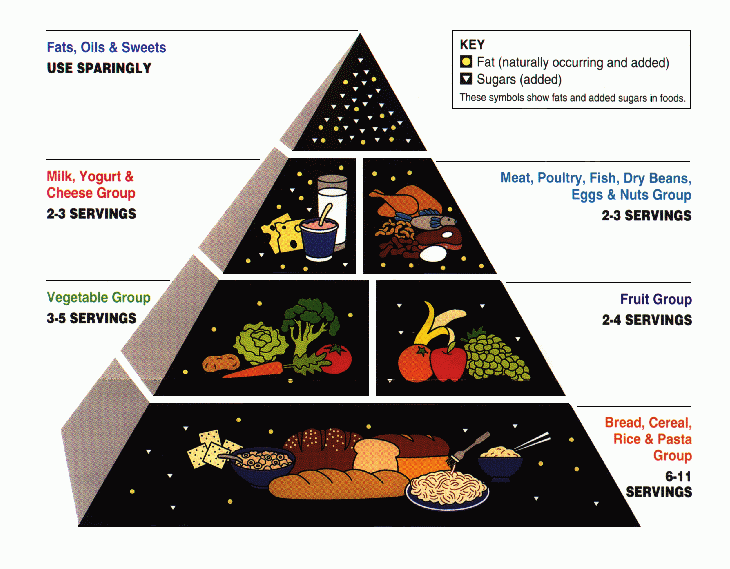
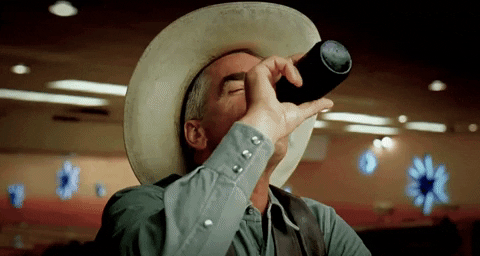
"The above seems to bear out Ms. Gajewski’s view"
Hey - I know her!
What I find illustrative about the American situation is that we will point to China, and feel so much superiority because they have scandals with say melamine in the formula, but we have the same issues here. It's not as severe as melamine, but it will poison you over time, causing cancers and inflammation, which leads to more cancers and heart issues. And while we're right to condemn places like China for putting profits above consumer health, why we can't transfer that attitude here, I don't know. It's all distraction.